16 start with S start with S
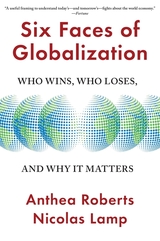
A Financial Times Best Book of the Year
A Fortune Best Book of the Year
A ProMarket Best Political Economy Book of the Year
An essential guide to the intractable public debates about the virtues and vices of economic globalization, cutting through the complexity to reveal the fault lines that divide us and the points of agreement that might bring us together.
Globalization has lifted millions out of poverty. Globalization is a weapon the rich use to exploit the poor. Globalization builds bridges across national boundaries. Globalization fuels the populism and great-power competition that is tearing the world apart.
When it comes to the politics of free trade and open borders, the camps are dug in, producing a kaleidoscope of claims and counterclaims, unlikely alliances, and unexpected foes. But what exactly are we fighting about? And how might we approach these issues more productively? Anthea Roberts and Nicolas Lamp cut through the confusion with an indispensable survey of the interests, logics, and ideologies driving these intractable debates, which lie at the heart of so much political dispute and decision making. The authors expertly guide us through six competing narratives about the virtues and vices of globalization: the old establishment view that globalization benefits everyone (win-win), the pessimistic belief that it threatens us all with pandemics and climate change (lose-lose), along with various rival accounts that focus on specific winners and losers, from China to America’s Rust Belt.
Instead of picking sides, Six Faces of Globalization gives all these positions their due, showing how each deploys sophisticated arguments and compelling evidence. Both globalization’s boosters and detractors will come away with their eyes opened. By isolating the fundamental value conflicts—growth versus sustainability, efficiency versus social stability—driving disagreement and showing where rival narratives converge, Roberts and Lamp provide a holistic framework for understanding current debates. In doing so, they showcase a more integrative way of thinking about complex problems.
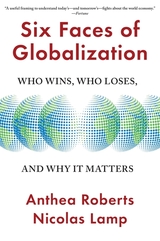
A Financial Times Book of the Year
A Fortune Book of the Year
“This book compels us to change our position, move out of our comfort zone, and see the world differently.”—Branko Milanovic, author of Capitalism, Alone
“A very smart book…not just about globalization, but also about the power and importance of narrative…Highly recommended.”—Anne-Marie Slaughter, CEO, New America
“An indispensable guide to how and why many people have abandoned the old, time-tested ways of thinking about politics and the economy. This is the book the world needs to read now.”—Richard Baldwin, author of The Great Convergence
When it comes to the politics of free trade and open borders, the camps are clear, producing a kaleidoscope of claims and counterclaims. But what exactly are we fighting about? Anthea Roberts and Nicolas Lamp cut through the confusion and mudslinging with an indispensable survey of the interests, logics, and ideologies driving these seemingly intractable arguments.
Instead of picking sides, Six Faces of Globalization guides us through six competing narratives about the virtues and vices of globalization, giving each position its due and showing how each deploys sophisticated arguments and compelling evidence. Both globalization’s boosters and detractors will come away with their eyes opened. By isolating the fundamental value conflicts driving disagreement—growth versus sustainability, efficiency versus social stability—and showing where rival narratives converge, this book provides an invaluable framework for understanding ongoing debates and finding a way forward.
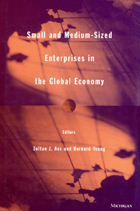
The first part of the volume provides an overview of the phenomenon of globalization, arguing that entrepreneurial discovery and technological change lead to globalization, which in turn leads to further opportunity for entrepreneurial discovery--no less for SMEs than for multinational corporations. In part two, the essays examine the role of SMEs in the global economy and why they are thriving. Part three reviews the roles of SMEs and innovators and examines their roles in direct foreign investment. Part four explores the role of technological diversity and knowledge spillovers as a way to explain the superior innovative performance of SMEs. Part five looks at the role of SMEs in technology transfer. Finally, part six examines the theoretical and policy implications of the international activities of SMEs, suggesting that policies should aim to reduce the costs in international expansion for SMEs.
This volume will provide the foundation for further study in SMEs and globalization. It will appeal to scholars and students in both international business and economics.
Zoltan J. Acs is Professor of Economics and Finance, University of Baltimore. Bernard Yin Yeung is Professor of International Business, University of Michigan.

Can businesses collaborate with nonprofit organizations? Drawing lessons from 24 cases of cross-sector partnerships spanning the hemisphere, Social Partnering in Latin America analyzes how businesses and nonprofits are creating partnerships to move beyond traditional corporate philanthropy. An American supermarket and a Mexican food bank, an Argentine newspaper and a solidarity network, and a Chilean pharmacy chain and an elder care home are just a few examples of how businesses are partnering with community organizations in powerful ways throughout Latin America. The authors analyze why and how such social partnering occurs.
The book provides a compelling framework for understanding cross-sector collaborations and identifying motivations for partnering and key levers that maximize value creation for participants and society.

Drawing on the work of an international group of noted economists, the editors argue that social security programs provide strong incentives for workers to leave the labor force by retiring and taking the benefits to which they are entitled. By penalizing work, social security systems magnify the increased financial burden caused by aging populations, thus contributing to the insolvency of the system. This book is a model of comparative analysis that evaluates the effects of illustrative policies for countries facing the impending rapid growth of social security benefits. Its insights will help inform one of the most pressing debates.

The studies in this volume explore how financial incentives to work at older ages have evolved as a result of public pension reforms since 1980 and how these changes have affected retirement behavior. Utilizing a common template to analyze the developments across countries, the findings suggest that social security reforms have strengthened the financial returns to working at older ages and that these enhanced financial incentives have contributed to the rise in late-life employment.


This eighth phase of the International Social Security project, which compares the social security and retirement experiences of twelve developed countries, documents trends in participation and employment and explores reasons for the rising participation rates of older workers. The chapters use a common template for analysis, which facilitates comparison of results across countries. Using within-country natural experiments and cross-country comparisons, the researchers study the impact of improving health and education, changes in the occupation mix, the retirement incentives of social security programs, and the emergence of women in the workplace, on labor markets. The findings suggest that social security reforms and other factors such as the movement of women into the labor force have played an important role in labor force participation trends.
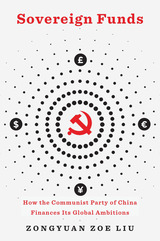
The first in-depth account of the sudden growth of China’s sovereign wealth funds and their transformative impact on global markets, domestic and multinational businesses, and international politics.
One of the keys to China’s global rise has been its strategy of deploying sovereign wealth on behalf of state power. Since President Xi Jinping took office in 2013, China has doubled down on financial statecraft, making shrewd investments with the sovereign funds it has built up by leveraging its foreign exchange reserves. Sovereign Funds tells the story of how the Communist Party of China (CPC) became a global financier of surpassing ambition.
Zongyuan Zoe Liu offers a comprehensive and up-to-date analysis of the evolution of China’s sovereign funds, including the China Investment Corporation, the State Administration of Foreign Exchange, and Central Huijin Investment. Liu shows how these institutions have become mechanisms not only for transforming low-reward foreign exchange reserves into investment capital but also for power projection. Sovereign funds are essential drivers of the national interest, shaping global markets, advancing the historic Belt and Road Initiative, and funneling state assets into strategic industries such as semiconductors, fintech, and artificial intelligence. In the era of President Xi, state-owned financial institutions have become gatekeepers of the Chinese economy. Political and personal relationships with prestigious sovereign funds have enabled Blackstone to flourish in China and have fueled the ascendance of private tech giants such as Alibaba, Ant Finance, and Didi.
As Liu makes clear, sovereign funds are not just for oil exporters. The CPC is a leader in both foreign exchange reserves investment and economic statecraft, using state capital to encourage domestic economic activity and create spheres of influence worldwide.

With the growing debate about the effect of financial interdependence on the ability of states to conduct economic policy and indeed to preserve their independence in the face of unprecedented economic linkages, this book will be of interest to political scientists and economists as well as policy makers concerned with the impact of financial globalization and the causes of differentials in access to capital.
Andrew C. Sobel is Assistant Professor of Political Science and Resident Fellow, Center in Political Economy, Washington University, St. Louis. He is the author of Domestic Choices, International Markets: Dismantling National Barriers and Liberalizing Securities Markets.
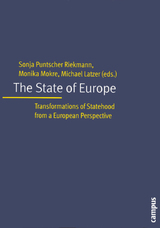
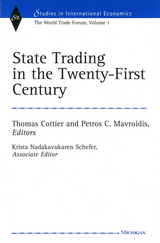
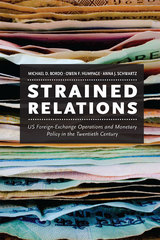
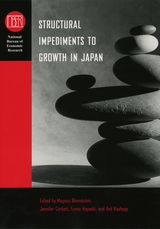
In this, the first book-length academic treatment of this important issue, a team of notable contributors present nine papers, offering a comprehensive assessment of those economic difficulties and addressing a range of specific issues, from financial restructuring and the impact of the aging Japanese population to corporate behavior, public lending, employment practices, and innovative capacity. In each paper, contributors clearly identify and outline problems and concerns, carefully pose provocative questions, and in many instances present concrete suggestions for improvement.
The resulting volume is a timely and important examination of critical issues for Japan's stalling economy, packed with both telling data and expert analysis and offering valuable perspectives on Japan's current obstacles.
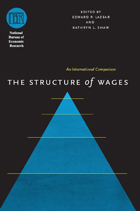
A distinguished team of contributors reveal how a rising wage variance rewards star employees at a higher rate than ever before, how talent becomes concentrated in a few firms over time, and how outside market conditions affect wages in the twenty-first century. From a comparative perspective that examines wage and income differences within and between countries such as Denmark, Italy, and the Netherlands, this volume will be required reading for economists and those working in industrial organization.

The culmination of more than twenty years of research by Michael Brecher and Jonathan Wilkenfeld, the book analyzes crucial themes about crisis, conflict, and war and presents systematic knowledge about more than 400 crises, thirty-one protracted conflicts and almost 900 state participants. The authors explore many aspects of conflict, including the ethnic dimension, the effect of different kinds of political regimes--notably the question whether democracies are more peaceful than authoritarian regimes, and the role of violence in crisis management. They employ both case studies and aggregate data analysis in a Unified Model of Crisis to focus on two levels of analysis--hostile interactions among states, and the behavior of decision-makers who must cope with the challenge posed by a threat to values, time pressure, and the increased likelihood that military hostilities will engulf them.
This book will appeal to scholars in history, political science, sociology, and economics as well as policy makers interested in the causes and effects of crises in international relations. The rich data sets will serve researchers for years to come as they probe additional aspects of crisis, conflict and war in international relations.
Michael Brecher is R. B. Angus Professor of Political Science, McGill University. Jonathan Wilkenfeld is Professor and Chair of the Department of Government and Politics, University of Maryland. They are the coauthors of Crises in the Twentieth Century: A Handbook of International Crisis, among other books and articles.
READERS
Browse our collection.
PUBLISHERS
See BiblioVault's publisher services.
STUDENT SERVICES
Files for college accessibility offices.
UChicago Accessibility Resources
home | accessibility | search | about | contact us
BiblioVault ® 2001 - 2024
The University of Chicago Press









